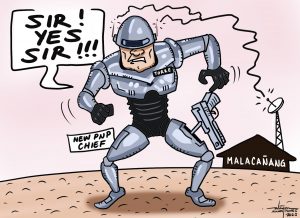THE RECENT landslide at Masara, a mining village located in Maco, Davao de Oro, leading to a death toll of 85 with 38 individuals still missing as of Wednesday has raised significant concerns about the safety and environmental consequences of mining operations in the area.
First, it is critical to examine the argument put out by the Department of Environment and Natural Resources – Mines and Geosciences Bureau XI (DENR-MGB XI) concerning the role of Apex Mining Corporation in the occurrence of the landslide in Masara. The DENR-MGB XI has confirmed that the landslide happened outside of the active mining operations area of the aforementioned company. As a pending result of their investigation, no directive to halt the operations has been imposed on the company in question. However, it is crucial to acknowledge the wider context of environmental hazards linked to the mining operations of Apex, regardless of their direct role in the Masara landslide.
In the 2021 Report on Economic Assessment and Ore Reserve Estimation of Maco Epithermal Gold Deposits commissioned by Apex Mining, the geological and meteorological conditions in Davao de Oro provided insight into the region’s vulnerability to hazards like landslides. Davao de Oro is classified as Type IV in the Modified Corona’s Classification System, which means it has practically continuous rainfall throughout the year, with the heaviest precipitation occurring during the monsoon season from November to February. This classification highlights the increased likelihood of slope instability and erosion in the area. With these conditions, landslide risk is set to escalate with climate change and continuous activities in the area.
In addition, the same report emphasized the presence of a prominent fault lineation which extends from Sandy – Masara – Bonanza and continues in a northwest direction. Fault lineations provide areas of vulnerability in the Earth’s crust, increasing the possibility of slope instability and failure. The existence of this fault lineation in Masara indicates that the region is prone to geological hazards which elucidates the High to Very High susceptibility to landslide as determined by the Mines and Geosciences Bureau.
In 2008, the Mines and Geosciences Bureau XI officially classified Barangay Masara as a “NO-BUILD ZONE” since it is considered a critical area. The decision was motivated by a persistent pattern of landslides going back to 2007, which led to recorded fatalities. There is a high probability that there were more landslide occurrences, however, they were not documented since there were no deaths reported.
Apex Mining employs the method of underground mining in its operations. This process has the potential to disrupt the stability of rock and soil layers, hence increasing the likelihood of landslides. Unstable regions, particularly on very steep terrains such as Masara, are more prone to such hazards. Given the massive human and environmental impacts of mining, it is outrageous that the local population only receives one (1) percent of the company’s profits as a royalty. Financial recompense is inadequate in the face of disasters like the recent landslide in Masara, which killed 85 people as of today.
As confirmed by DENR-MGB XI’s geohazard assessments, Barangay Masara lies in High to Very High Susceptibilities to Landslide, which risks were increased due to the continuous Low-Pressure Area-caused rainfall in February. Despite Masara being declared as a No-Build Zone, Apex Mining continued building its facilities and operations despite the declaration of the DENR-MGB XI. Although the landslide area is not actively being operated on, it is still within the premises of Apex Mining’s Mineral Production Sharing Agreement (MPSA 234-2007 XI).
The continuous operation of Apex mining is extremely questionable given the very high susceptibility of the area to hazards. They cannot claim ignorance about the very critical nature of the area as evidenced by their own reports and the declaration of the DENR-MGB XI. Furthermore, Apex exemplifies a mining corporation that may seem to adhere to regulations on documents but falls short in actual implementation. The DAO 2000-98 mandated them to establish an emergency response readiness program to address any “reasonably foreseeable industrial and natural disasters”. Assuming that they do have such systems implemented, the recent landslide should have been prevented. However, they disregarded these regulations and constructed their bus terminal in an area that was officially designated as a NO-BUILD ZONE.
What mining companies fail to understand is no amount of money will ever compensate for the loss of life or the irreversible damage to the environment.
If the DENR-MGB XI and other relevant agencies responsible for the monitoring and assessment of Apex Mining had performed their duties, this occurrence would have been prevented. It is already well known by the DENR-MGB XI, Apex Mining, and the Local Government Unit that the tenement area is situated in an area with a high to extremely high vulnerability to landslides. With this, Apex Mining should not have been granted permission to conduct operations in this area in the first place.
In light of these terrifying facts, immediate and strong measures are required to entirely halt all mining operations in Masara and other similar critical areas. The Local Government Unit (LGU) has made efforts to relocate households. However, it is imperative for the LGU to assert their authority to enforce that no one persists in occupying the NO BUILD ZONE and prohibit the expansion of the mining facilities and tenements to protect the welfare of the inhabitants and effectively reduce possible dangers.
Moving forward, IDIS calls for increased collaboration between government agencies, civil society organizations, and local communities to develop and implement robust environmental management plans that prioritize the protection of biodiversity, water resources, and human well-being in mining-affected areas. IDIS remains committed to advocating and promoting sustainable development strategies that preserve the principles of environmental preservation and sustainability.#
ATTY. MARK T. PEÑALVER
Executive Director
0939-630-7124
ENP. LEMUEL LLOYD I. MANALO, MSERM
Program Coordinator
0943-616-9092
MILKY SHAYNE GINDON
Policy Advocacy Officer
0906-806-0240

